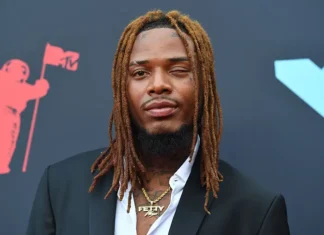
By Will Crockett
The Seattle Medium
Seattle’s African-American Writers’ Alliance, or AAWA, has been providing Seattle’s Black community with an essential safe space for creatives of all kinds to read, write, perform, and to improve their writing skills, according to its members, who hold events year round.
Founded in 1991, AAWA provides new and experienced writers a forum where they can read their works and improve their writing skills through artistic collaboration. The organization holds regular open readings for local authors, giving writers the opportunity to share their works with the public. Their regularly published anthology is proof of that.
Members of AAWA said many Black voices are not given the platform they deserve, and the group is working to remedy that injustice through their readings and workshops.
“The work of AAWA members is important to Seattle specifically because African-Americans represent a small percentage of the general population, thus our voices can be missed amongst the din of other voices,” said Eva Abram, a folk storyteller, American history author, actor, and keynote speaker.
“The existence of AAWA helps African-American writers get noticed by the larger community; the writings of AAWA members helps amplify our voices.”
Mr. Gaylloyd Sissón, AAWA co-chairperson and elder, feels the same about the organization. “Black folks, in my mind, are not that visible in our society, especially here in the Northwest. AAWA gives me a chance to meet other African-Americans who may even have different viewpoints of the society that I live in.”
Noni Ervin, award-winning author, creator of the children’s book series “Kinara Park Kids,” and AAWA member, said it’s important that people with similar lived experiences have a safe creative space. “Sometimes we change the way we write as Black writers to not have to explain ourselves,” she said.
“It’s very close to being around family because there are some words we don’t have to explain, nicknames or cultural sayings. What we would call our mothers, grandmothers, or aunties is different and we don’t have to explain any of that.”
Ervin also said: “If you hear our writing you hear our culture, you hear our concerns, you hear our love, you hear our ambitions, and you hear what is important to us.” Writers, she said, forecast social issues and change.
“You also hear warning flares–those yellow canaries out of the mines that say ‘Hey, we keep hearing these things from our Black writers, our Asian writers, our Native-American writers, maybe we should pay attention to these things,’” she said. “The artists are the ones that are giving everyone heads-up.”
Not only has AAWA been an important place for African-American authors of all types to share their work, it has also been a community to hold the important, underrepresented history of Seattle’s Black community.
Kathya Alexander, author of civil-rights stories, actor, and contemporary African-American playwright, said the organization is a keeper of Seattle’s Black history through the group’s elders, who pass those valuable stories down through generations.
“They have a lot of Seattle’s Black history as their lived experience. I don’t think that history is really told enough and that is one of the best things that I think that they do.”
Alexander said “It is great for younger writers to be mentored and exposed to Seattle history. It’s Black history, it’s not like it’s taught in school or anything like that.”
Mr. Sissón also said teaching African-American history and lived experience to people of all backgrounds is key in this process, “There is still quite a bit of struggle, and we must make people aware of our family that goes back to the time that they were first brought to this continent.”
Mr. Sissón believes that the African-American Writers Alliance and similar organizations are integral to getting American society and the world to recognize people of African descent and their struggles. “We, and the plights that we have gone through as Black human beings in this country, are on the cusp of being recognized by the American community that is not African-American.”
Abram outlines her hopes for the future of the organization. “AAWA is a gem of which many people in Seattle aren’t yet aware. My hope is that budding African-American writers find and join this group and use its support to blossom and prosper.”



